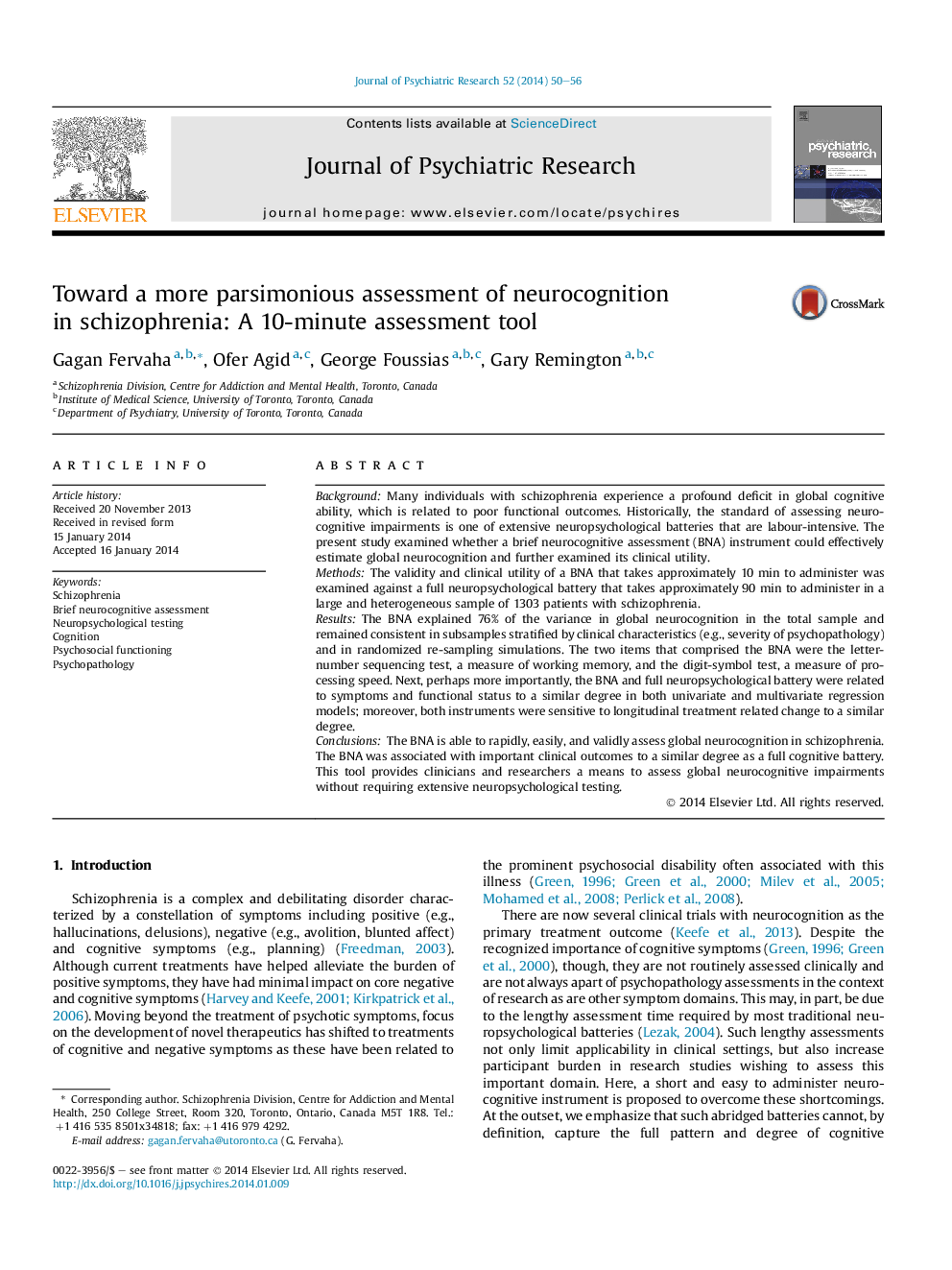| کد مقاله | کد نشریه | سال انتشار | مقاله انگلیسی | نسخه تمام متن |
|---|---|---|---|---|
| 327009 | 542687 | 2014 | 7 صفحه PDF | دانلود رایگان |
BackgroundMany individuals with schizophrenia experience a profound deficit in global cognitive ability, which is related to poor functional outcomes. Historically, the standard of assessing neurocognitive impairments is one of extensive neuropsychological batteries that are labour-intensive. The present study examined whether a brief neurocognitive assessment (BNA) instrument could effectively estimate global neurocognition and further examined its clinical utility.MethodsThe validity and clinical utility of a BNA that takes approximately 10 min to administer was examined against a full neuropsychological battery that takes approximately 90 min to administer in a large and heterogeneous sample of 1303 patients with schizophrenia.ResultsThe BNA explained 76% of the variance in global neurocognition in the total sample and remained consistent in subsamples stratified by clinical characteristics (e.g., severity of psychopathology) and in randomized re-sampling simulations. The two items that comprised the BNA were the letter-number sequencing test, a measure of working memory, and the digit-symbol test, a measure of processing speed. Next, perhaps more importantly, the BNA and full neuropsychological battery were related to symptoms and functional status to a similar degree in both univariate and multivariate regression models; moreover, both instruments were sensitive to longitudinal treatment related change to a similar degree.ConclusionsThe BNA is able to rapidly, easily, and validly assess global neurocognition in schizophrenia. The BNA was associated with important clinical outcomes to a similar degree as a full cognitive battery. This tool provides clinicians and researchers a means to assess global neurocognitive impairments without requiring extensive neuropsychological testing.
Journal: Journal of Psychiatric Research - Volume 52, May 2014, Pages 50–56
